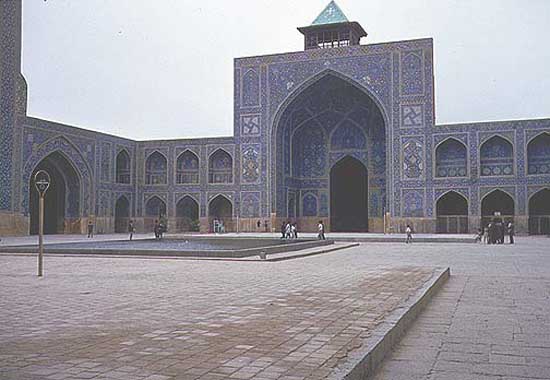
RPCV Michael Beard shares Middle Eastern experience in Iran
Professor shares Middle Eastern experience
By Andrea Domaskin, Dakota Student Staff Writer
UND professor Michael Beard is the kind of person you could call a thinker.
"I used to do reporting many years ago," he said. "It was the most fun. I'm quite shy over the phone, I really don't like phoning people at all, but as long as I was phoning on behalf of the newspaper, I could do it."
He paused for a few seconds and then said, "I think there's a moral there, something about how institutions define us."
He teaches a variety of classes in the English department, but specializes in Middle Eastern literature and world literature.
"These days, anybody who studies the Middle East does a variety of things. It used to be that people who studied the Middle East specialized in it. Now, you work with anthropology, English, any number of disciplines," he said.
'Any number of disciplines' is a phrase that describes Beard accurately. As well as teaching comparative language and Middle Eastern classes, he is a student of languages. He has translated Italian, French, Persian and Arabic languages, and has studied many more.
"If I listed classes I've gotten into, it would be in the double digits," he said. "I often study languages for research."
Recently, Beard co-translated from Persian to English the poetry of Abbas Kiarostami, a famous third world movie director, into a book called "Walking with Wind." The book is heavy, its glossy pages containing poetry in both English and Persian.
But he says the most important research activity he is involved with now is the journal "Edebiyat", which means literature in Arabic, Persian, and Turkish. The journal includes articles on and translations from all the Middle Eastern languages, including Arabic, Persian, Turkish, Urdu, Kurdish, and Armenian and Central Asian languages. It is published twice a year.
"I consider the project an institutional version of things I believe, for instance to stress the cultural differences between Middle Eastern cultures," he said via e-mail.
Beard knows the differences among different Middle Eastern cultures first-hand Ñ he has spent many years in the Middle East, first as a Peace Corps volunteer in Iran and then as an instructor at American University in Cairo, Egypt.
"I've been fortunate to be overseas a lot," he said. "I was in the Peace Corps in Iran from 1968-1970. It was the first time I studied a Middle Eastern language, Persian."
During his time in the Peace Corps, he was introduced to his wife, associate professor of accounting and business law, Victoria Beard, on top of the Leaning Tower of Pisa in Italy. "It's one of those things you wouldn't think would happen in reality," he said.
After the Peace Corps, he got his doctorate in comparative literature from Indiana University in 1974 and then taught for four years at American University in Cairo.
"Cairo is, I think, the friendliest place I've ever lived. People get on your wavelength immediately," Beard said.
A year after his time in Cairo, he came to UND and began sharing his knowledge of the Middle East, which has become especially important since the World Trade Center was attacked in September.
"It seems to me that these days we're all very anxious to learn about the Middle East, quite rightly. But before you can understand Middle Eastern politics, you need to understand Middle Eastern culture. Politics build from culture. The politics of Egypt and Iran are always going to be different because the culture is different," he said.
Beard prefers to teach about the Middle East through novels, because they capture the culture of the Middle East.
And at an institution like UND, he can teach about the Middle East this way, as well as working on his other projects.
"When you ask me whether I did things on behalf of institutions that I might not do in my own name, I guess the answer is that I always found institutions, like this one, that had a vision like mine," he said.
The Dakota Student reserves copyright privilege for all stories written and published by the staff. Permission must be given by the editor to reprint or repost any story, cartoon, photograph, or part thereof.
Copyright © Dakota Student 2001.
Last updated: 22-Oct-01 @ 2:40 PM CDT
Permanent URL: http://www.und.edu/org/ds/_issues/2001/10/23/life/beard.html
